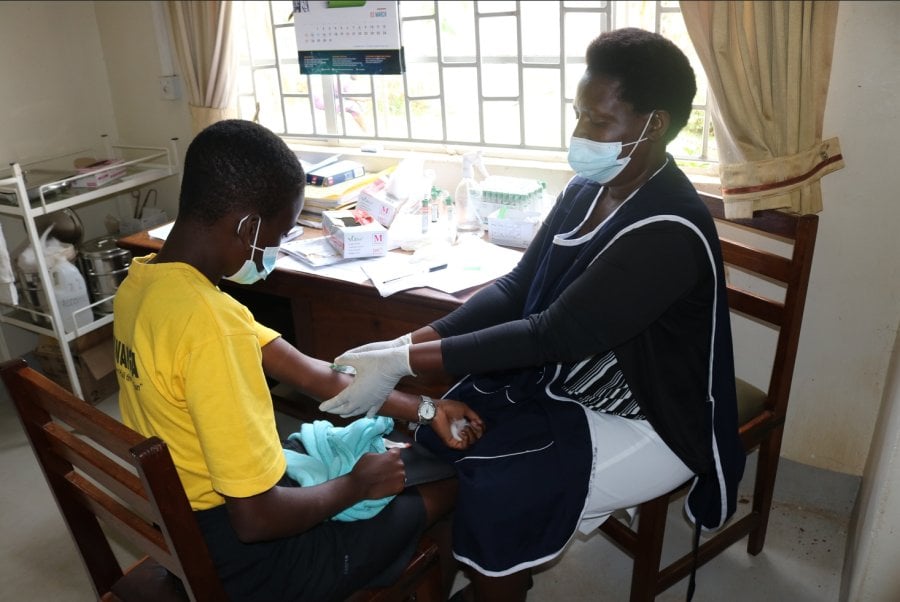
Studies show that most vaccines developed to combat the spread of infectious diseases such as Tuberculosis are less effective when used in sub-Saharan countries. Scientists have linked this to the predominance of worm infections in such settings. The only credible way to develop a lasting solution lies in clarification of the factors that affect the response to vaccines in such communities.
The Population Differences in Vaccine Responses (POPVAC) programme is conducting studies in adolescents to understand drivers of population differences in vaccine response which could lead to better understanding and development of effective vaccines. POPVAC is implemented by scientists led by Prof Alison Elliott at MRC/UVRI and LSHTM Uganda Research Unit, with funding from the Medical Research Council/UK Research and Innovation. Adolescents are a key target for vaccines such as HPV against tuberculosis and sexually transmitted infections. The studies focused on this target population to provide extensive opportunities to answer relevant questions.
The POPVAC programme is a set of three-linked clinical trials with an overarching goal to understand population differences in vaccine responses in order to identify strategies through which vaccine effectiveness can be optimized for the low-income, tropical settings where they are especially needed.
Trial one aims to determine the effect of intensive treatment for schistosomiasis on response to vaccines among island adolescents.
Trial two seeks to determine the effect of intensive treatment for malaria on response to vaccines among rural adolescents.
Trial three seeks to determine the effect of BCG re-vaccination on the response to unrelated vaccines among adolescents in the Entebbe Mother and Baby Study.
According to Dr. Ludoviko Zirimenya, a scientist on the POPVAC programme, results from these clinical trials will add to the understanding of population differences in vaccine responses and on interventions that may enhance them.
There is potential for long term gains of the POPVAC programme on policy and practice, both in Uganda and around the world.
LSHTM's short courses provide opportunities to study specialised topics across a broad range of public and global health fields. From AMR to vaccines, travel medicine to clinical trials, and modelling to malaria, refresh your skills and join one of our short courses today.
